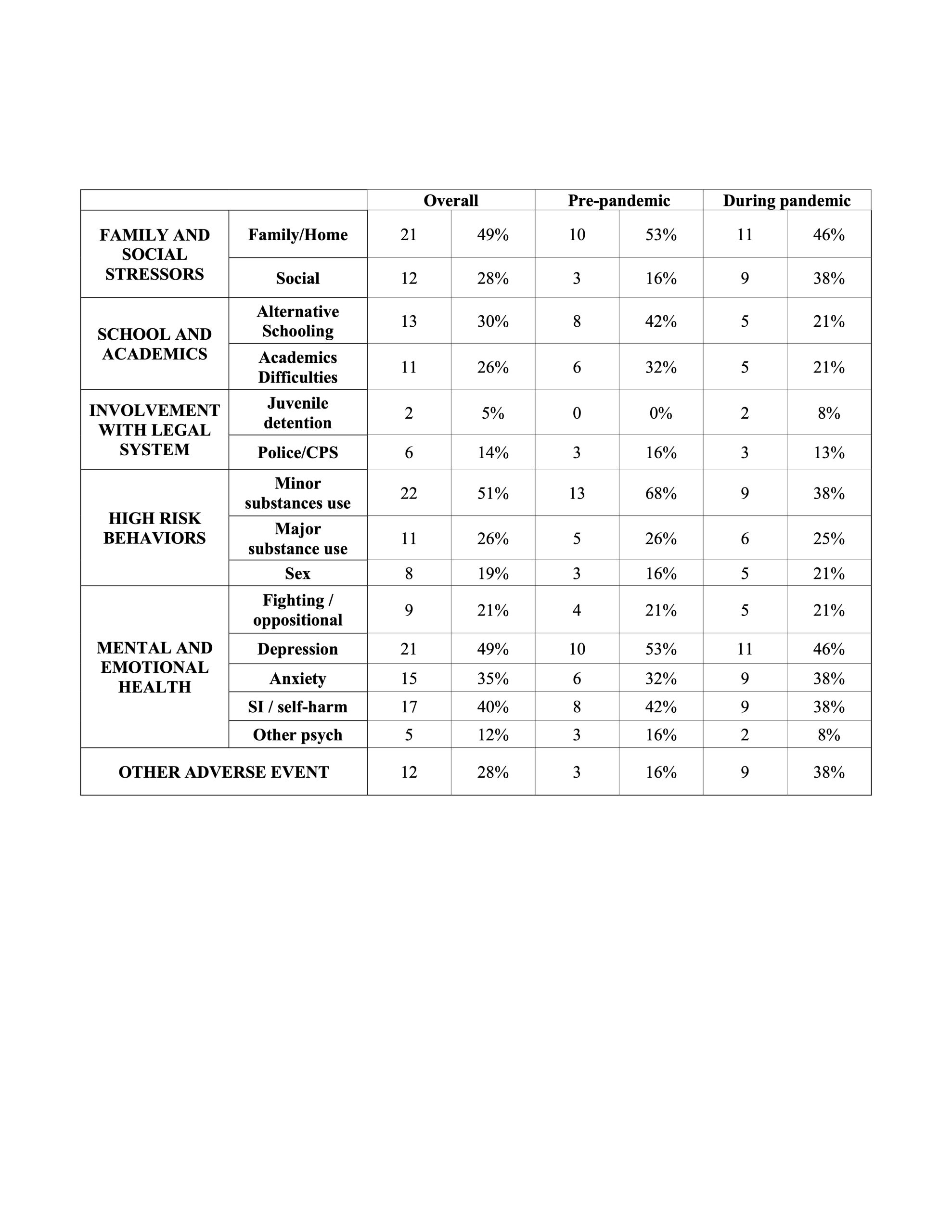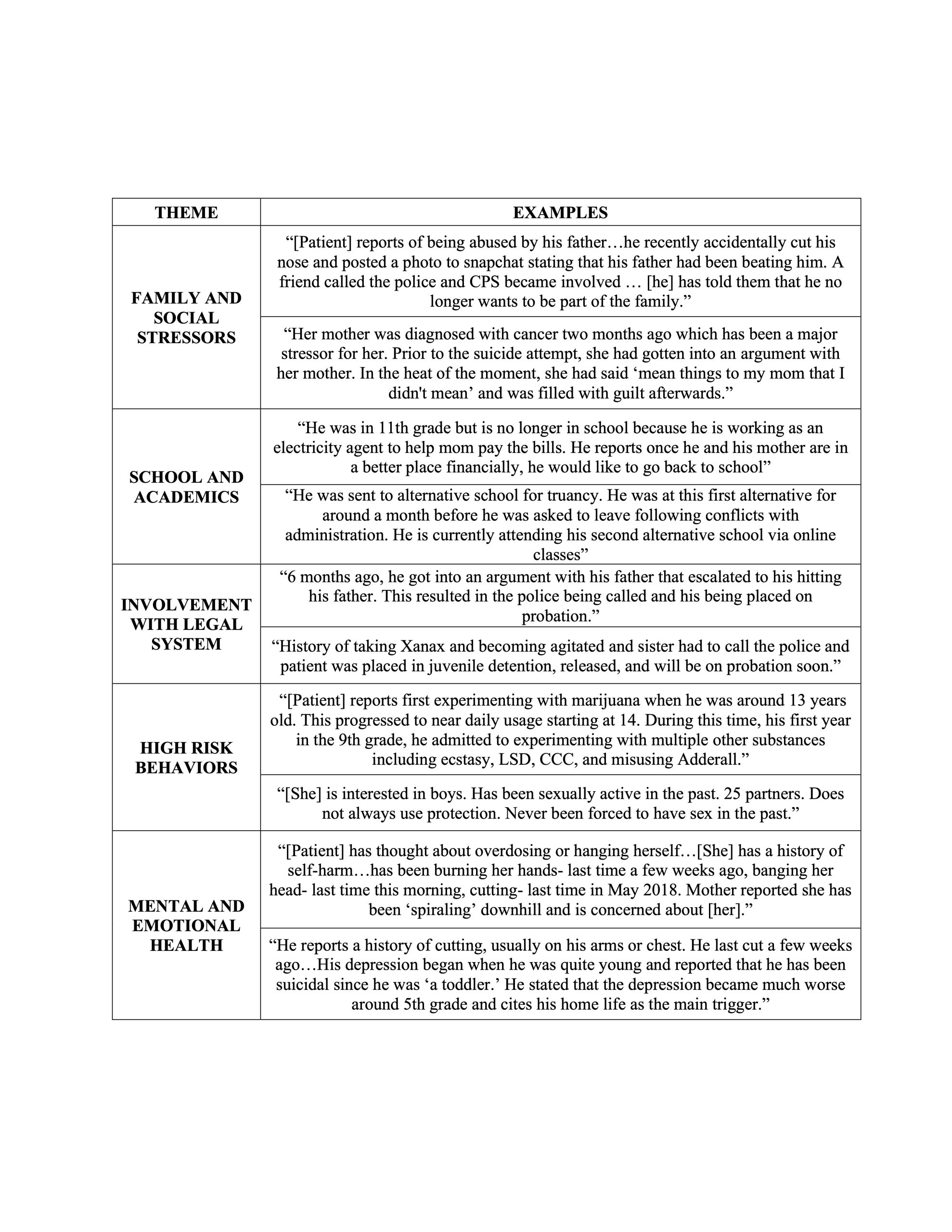Background: Adolescent e-cigarette use was declared as an epidemic by the U.S. Surgeon general in 2018 and has severe health consequences, including e-cigarette, or vaping, product use-associated lung injury (EVALI). It is known that e-cigarette use is associated with mental health disorders and psychosocial stressors; however, there is a knowledge gap in characterizing psychosocial stressors in EVALI. We aimed to describe the psychosocial characteristics of adolescents hospitalized with EVALI at our institution.
Methods: All adolescents who were hospitalized at Children’s Medical Center in Dallas, Texas from 2018-2022 and met the Centers for Disease Control and Prevention case definitions for EVALI were included in the analysis. Psychosocial histories were extracted from the electronic health record from three types of clinician notes: 1) primary team, 2) social work, 3) psychology and/or psychiatry. Notes were analyzed using a deductive process for recurring themes (e.g. family and social stressors, school and academics, involvement with legal system, etc.), and representative quotations were selected to highlight the themes.
Results: A total of 43 patients (mean age 16.3; 63% male; 40% Non-Hispanic White, 60% Hispanic) were diagnosed with EVALI. A majority of patients (56%, n=24) were admitted during the COVID-19 pandemic. At least one psychosocial concern was identified in 40 patients (93%), with the most common themes being minor (e.g. alcohol, cigarettes, marijuana) substance use (51%, n=22), family/home conflict (49%, n=21), depression (49%, n=21), self-harm/suicidal ideation (40%, n=17), and anxiety (35%, n=15). Two patients (5%) had experienced juvenile detention, and six patients (14%) had other interactions with law enforcement or Child Protective Services. Thirteen patients (30%) were either not attending school or attending an alternative/online school due to their substance use, poor grades, or altercations with peers and school staff. Eleven patients (26%) admitted to more significant substance use, including cocaine, methamphetamine, fentanyl, and ecstasy.
Conclusions: The majority of adolescents hospitalized with EVALI have significant psychosocial stressors, the most common being substance use, family/home stressors, depression, and anxiety. Clinicians should regularly screen adolescents hospitalized with EVALI for these mental health co-morbidities and social stressors, and they should consider consulting with mental health and social work providers, who may be useful in coordinating multidisciplinary care.


